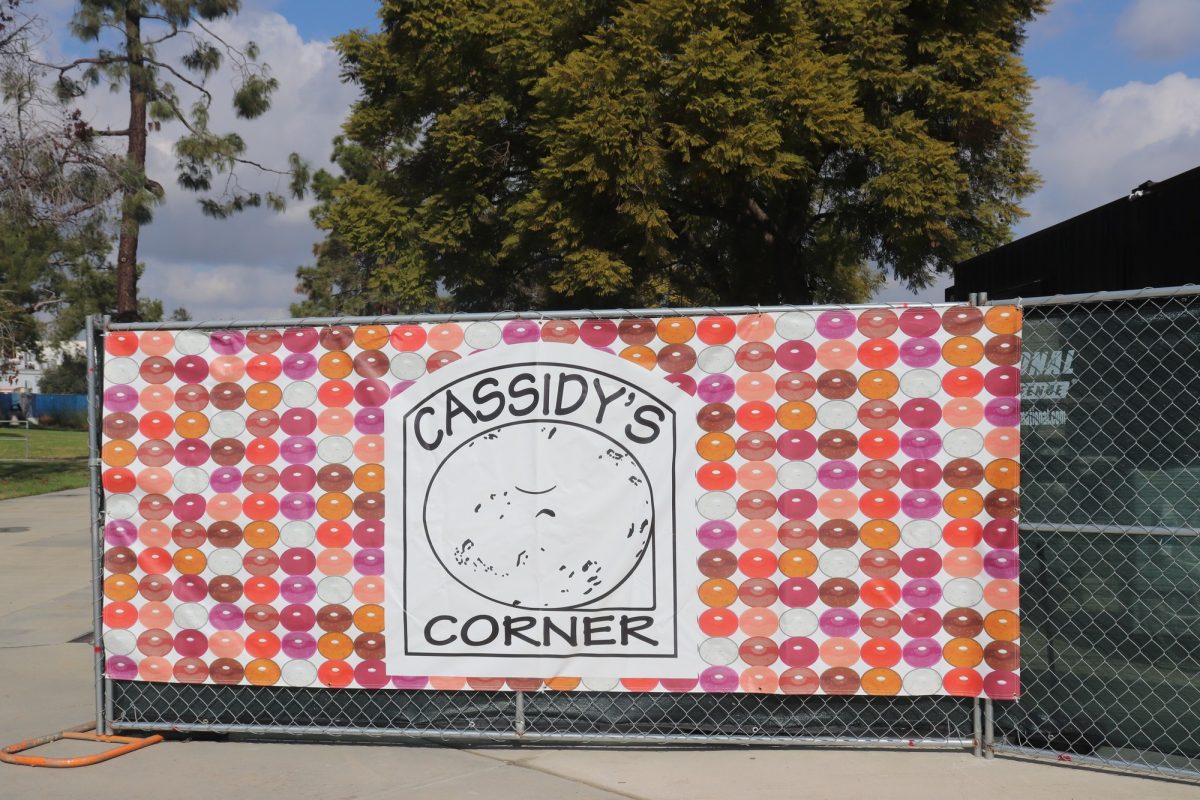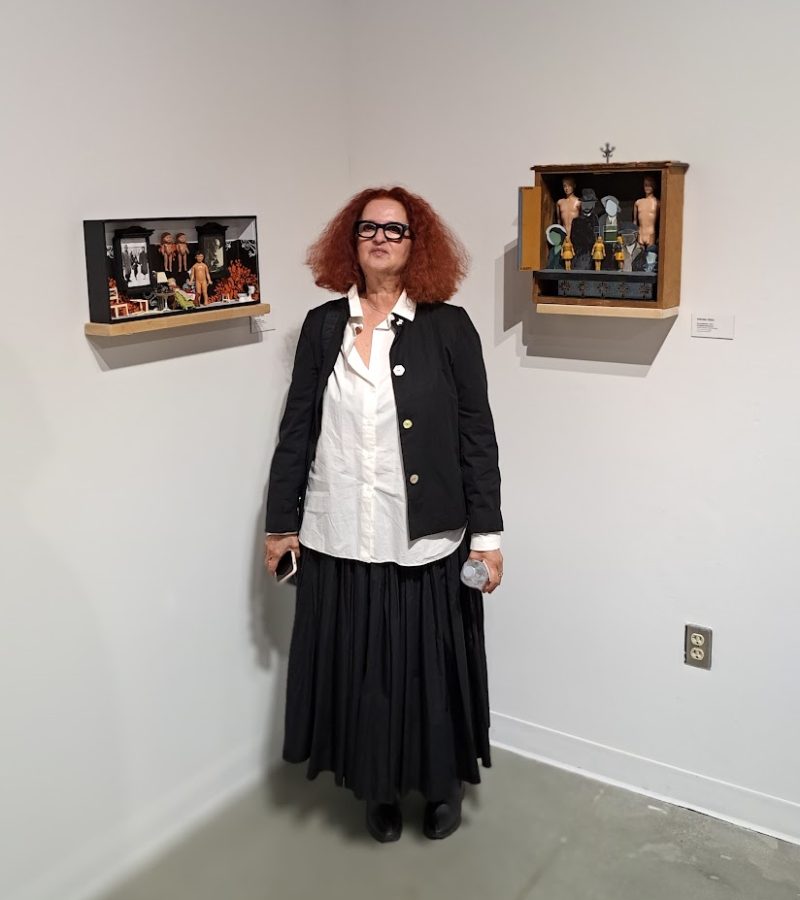Since the deportation of her husband Nicolas Cadin, Xandria Guzman Cadin, English major, has lived a life marked by strenuous legal battles, thousands of dollars worth of legal fees, calling cards and trips to Colombia.
“We spent $10,000 throughout the years* and I’m a student, I don’t have money” said the 22-year-old Cerritos College student.
The monetary and emotional costs tied to balancing being a student and wife to a man who lives more than 3,000 miles away may seem excessive, but Guzman Cadin won’t have it any other way.
“I’ll be damned if my relationship is going to fail because someone got sent back. If it’s going to fail, I rather it be on our terms. We want to make it work, and it is working,” Guzman Cadin said.
While many couples struggle to keep relationships with partners that are no more than a hundred miles away, she and her husband have used modern technology to maintain their relationship the best they can.
“We talk everyday via phone cards or the Internet. I am so thankful for the technology that is available to us. It can be frustrating at times when the phone connection is bad, as well as the fact that I must have spent at least $4-500 on phone cards already, but we have a definite will to stay in contact and know that ultimately he will be back,” she said.
She remembers being 14 years old and being taken aback by the strange foreign student in her French class who painted his nails with whiteout and listened to Guns ‘N’ Roses on his cassette player. He was 15 at the time of their first meeting and has told her that for him, it was love at first sight.
“We did not become closer until I was 16 and we had another French class together.
We had many similar interests and the pure luck of constantly being seated next to each other.
“We particularly connected on a project we did on Descartes and the fact that we were both reading ‘On the Road’ at the same time. With the encouragement of mutual friends, Nicolas and I started dating in June of 2004, and married in July of 2005,” she said.
When the two were still only dating, she understood that her then boyfriend’s status* in the United States was a big issue, not only legally, but also for her parents.
“My mom was freaking out that I had an ‘illegal immigrant’ (what she considered to be an illegal) boyfriend. She was saying, ‘he can’t get a job and he can’t do this,’ but they didn’t know him, so she just didn’t think it was the best choice,” she explained.
Knowing it’d be difficult to obtain her parents’ approval to wed, the summer after graduating from Millikan High School in Long Beach, she and Cadin eloped.
“The day after I turned 18, I went and got my marriage license and we got married. We were living in Catalina Island and that’s where he proposed to me. We got married on a Wednesday.
“He asked, ‘When should we do is?’ and I said, ‘Well, Wednesday is my day off.’ It was perfect, we got married on a cliff and then went and had tequila after,” she recalls with a smile.
Fearing disapproval from her parents, they decided to keep their marriage a secret for three years.
“They didn’t find out until last year that I had been married since I was 18. Basically, my entire family knew, except for my parents. Everyone knew better than to tell my mom because she’d flip her lid. Not now, but then. Now they love him and couldn’t see me with anyone else,” she said.
Obtaining her parents’ approval was only one in a series of many ongoing obstacles they’d encounter within their marriage.
“As soon as we got married, I sent in our marriage license to get our certificate and we were sent all this paperwork about becoming a legal citizen in the U.S. and he applied for citizenship,” she explained.
What they soon found out was that a political asylum case filed by Cadin’s mother on behalf of her son when he first immigrated to the U.S. at the age of 15 was going to complicate their marriage case even further.
“Because he already had a previous case going, we had to put [the political asylum and marriage case] together, so I had to work with my mother-in-law’s lawyer. I met with him and it didn’t feel right from the start, but I just kept working with him because I thought, ‘This is who I was supposed to work with,'” she said.
In Jan. 2008, they were granted a marriage case interview and according to a verbal notification given to them by their lawyer, their marriage was considered valid.
What their lawyer failed to do was present them with the actual document that proved it was valid.
Guzman Cadin was relieved when she saw they had received a notice in the mail last October from the U.S. Department of Justice containing what she believed would be a temporary green card.
However, when she opened that letter, everything changed.
“I opened the letter by myself in hopes of running down to the kitchen where Nicolas was making breakfast, to give him the good news, but that wasn’t what happened,” she explained.
The letter turned out to be a notice of deportation.
Her husband was to be deported back to his native country, Colombia, not because of their marriage case, but because of the political asylum case that had been filed in his name and not only denied, but denied repeatedly each time it was appealed thereafter.
“When I read that he was being deported, I started bawling. My thoughts raced back to all the close calls that we had and how each time that he wasn’t sent back it felt like a little triumph, but now it all had come crashing down. I started to think about moving to Colombia,” Guzman Cadin said.
As her husband prepared to return to his native country, she made the decision to stay in the U.S. and continue the legal battle they had begun three years ago.
Immediately following his deportation, she contacted the lawyer to see what her next step should be and was told that there was nothing she could really do.
Upset, frustrated and discontent with the response she had received from her lawyer, she refused to give up and sit around doing nothing and sought new legal counsel.
“I met with another lawyer thinking I would hear the same thing, instead I was told that my lawyer messed up. I was hysterical. Every time we had met with our previous lawyer, he asked for $1,500 or $3,000 for paperwork,” she said.
Guzman Cadin experienced a growing bit of confidence after learning from her new lawyer that her husband’s political asylum case should have never been a factor because his mother filed it when he was still a minor and can’t count against him.
According to her lawyer, her husband should be back in the U.S. by next year.
“This lawyer is really great. I also found out that if our old lawyer had taken the document proving that our marriage case was valid to Immigration Services, we could’ve stopped his deportation. He could’ve had his green card by February of 2008,” Guzman Cadin said.
However, there still exists one major area of complication.
Because he was deported, a 10-year ban from the U.S. has now gone into effect and must first be waived before he can return.
“Now we have to prepare a waiver package and present that our marriage is valid and prove that our other lawyer messed up, but it’s also $5,000, which is a lot of money to waive 10 years,” Guzman Cadin said.
“But within the next year I know Nicolas will be home. The lawyers that I am working with now assure me that things will go smoothly, the only thing I can do now is wait.”
While she waits, she’ll be returning to Colombia for the fourth time this year.
She spent two months in the summer with her husband in the city of Barranquilla and in January, she was able to meet her husband’s father, brothers and various members of his extended family for the first time while exploring Bogotá, Colombia’s capital.
“It’s kind of bittersweet because it’s not on my terms. I always wanted to visit there because my
husband’s from there, but I always get to that point where I remember it isn’t vacation, I’m only visiting.
“I’m dreading that moment where I’m at the airport having to say goodbye again,” she said of her travels.
Upon her husband’s return, she hopes that they will both be able to finish up a few more classes at Cerritos before transferring to a university.
“I hope that we’ll be able to teach English and travel on our own terms. I know things can only get better once he is home.”
*Corrections: When this story was originally published it stated that Xandria Guzman Cadin spent $10,000 throughout the year, but should’ve read throughout the years, instead.
The original story addressed Nicolas Cadin as an illegal immigrant, but he was on a visa when he arrived in the country and up until it expired.








